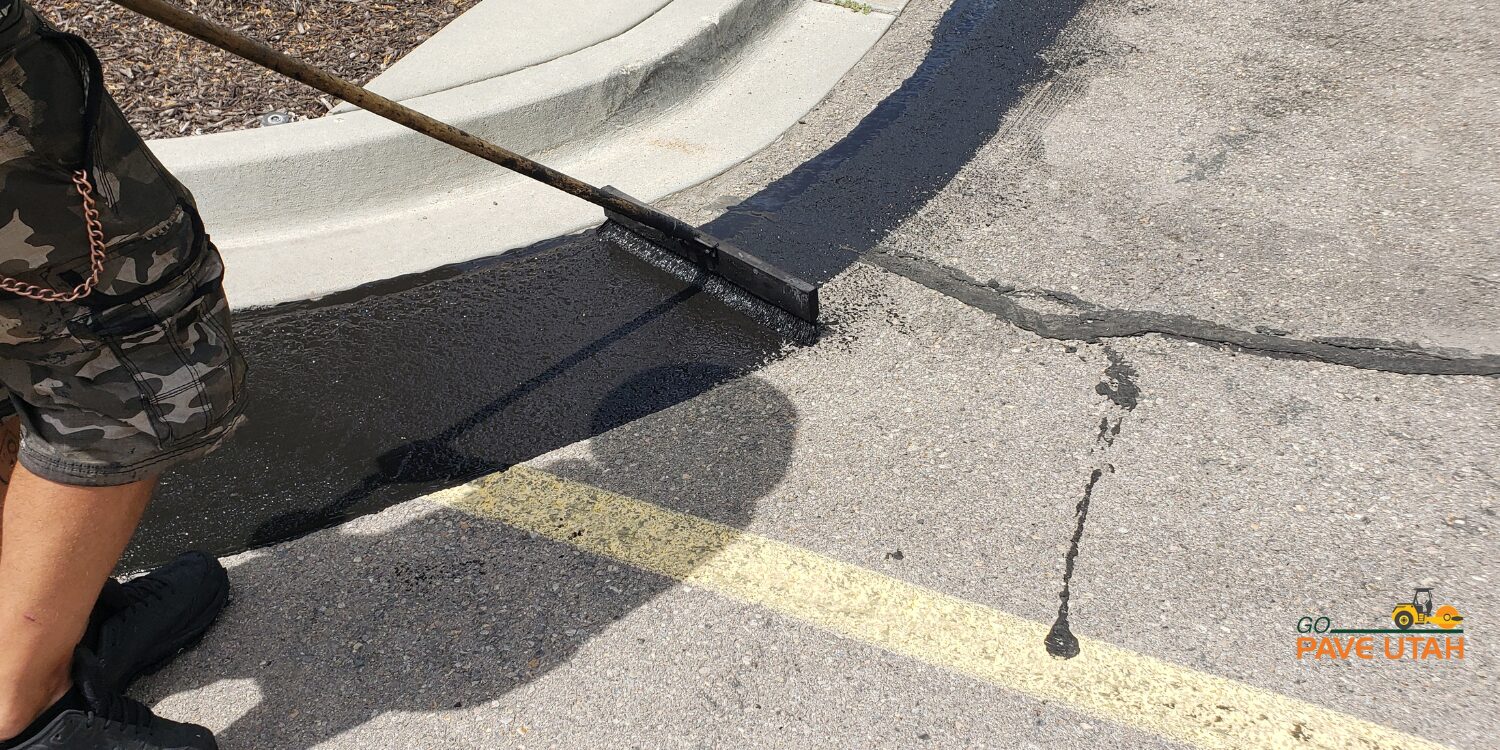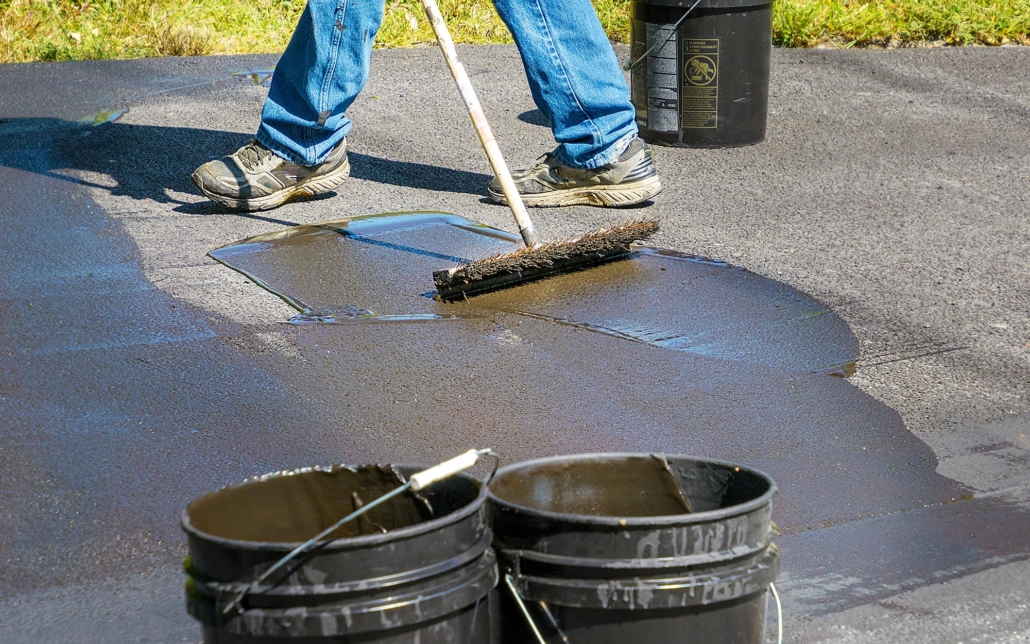Revitalize Your Home with Regrading and Asphalt Sealing Methods
Revitalize Your Home with Regrading and Asphalt Sealing Methods
Blog Article
Warm Mix Asphalt: A Lasting Service for Sidewalk
Hot Mix Asphalt (HMA) has actually become a leading sustainable selection for pavement services, using a myriad of cutting-edge innovations and ecological benefits. Its capacity to reuse products and lower power consumption offers an engaging case for its adoption in road building projects. Additionally, the lasting performance and resilience of HMA make it a preferred choice for infrastructure advancement. As the need for environmentally friendly building methods expands, exploring the nuances of HMA's sustainability can supply beneficial understandings into the future of pavement remedies.
Environmental Advantages of Warm Mix Asphalt

Moreover, Warm Mix Asphalt helps to reduce metropolitan heat island results. Its dark color soaks up sunlight, minimizing the quantity of warm reflected back into the atmosphere contrasted to lighter-colored pavements. This can lower ambient temperatures in metropolitan locations, reducing the demand for air conditioning and eventually lowering power usage.
In addition, Hot Mix Asphalt contributes to improved stormwater management. Its permeable nature enables water to reenergize and infiltrate the pavement groundwater materials, minimizing drainage and the danger of flooding. These ecological advantages make Warm Mix Asphalt a sustainable selection for paving highways and roadways.
Energy Effectiveness in HMA Production
Is power efficiency an essential factor in the production of Warm Mix Asphalt (HMA)? Absolutely. Energy plays a considerable function in the manufacturing of HMA, influencing both expense and environmental sustainability. One key aspect of power efficiency in HMA production is using warm mix asphalt (WMA) innovations (angled parking). WMA permits the mixing and positioning of asphalt at reduced temperature levels compared to traditional hot mix asphalt, causing minimized energy consumption throughout manufacturing. This process not only lowers gas usage however also decreases greenhouse gas discharges, making it a much more eco-friendly alternative.
Moreover, advancements in plant technologies have actually led to more energy-efficient HMA production processes. By enhancing energy usage in HMA production, the industry can lower its carbon impact while preserving high-quality sidewalk products.
Recyclability of Hot Mix Asphalt
The recyclability of Warm Mix Asphalt (HMA) is a pivotal facet of its sustainability and long-lasting environmental effect. HMA is one of one of the most recycled products in the United States, with over 100 million heaps of redeemed asphalt sidewalk (RAP) being recycled every year in brand-new pavement building and construction. Recycling HMA supplies a number of ecological benefits, such as decreasing the need for virgin products, decreasing energy usage throughout manufacturing, and decreasing the amount of waste sent out to landfills.
The process of reusing HMA involves crushing the existing pavement, squashing it right into smaller pieces, and blending it with brand-new accumulation and asphalt binder to create a recycled mix. This recycled mix can commonly perform along with or also far better than traditional HMA, while requiring less resources and generating reduced greenhouse gas discharges. By integrating RAP into brand-new sidewalk projects, road firms can conserve natural deposits, reduce expenses, and reduce the ecological footprint of road building and maintenance activities. Generally, the recyclability of HMA plays a considerable role in advertising sustainable techniques within the pavement market.

Long-Term Performance of HMA
Asphalt pavements demonstrate toughness and resilience over an extended period, reflecting the long-term efficiency of Warm Mix Asphalt (HMA) Additionally, innovations in HMA technology, such as the use of polymer-modified binders and warm mix asphalt, have actually even more enhanced the longevity and long life of HMA sidewalks. By focusing on high quality building and maintenance techniques, HMA continues to verify itself as a sustainable and cost-efficient option for lasting pavement framework.

HMA: Sturdiness and Sustainability
Demonstrating both resilience and sustainability, Hot Mix Asphalt (HMA) has actually come to be a cornerstone in the construction of lasting pavement frameworks - regrading. HMA's toughness stems from its capability to hold up against hefty tons, severe weather problems, and high web traffic quantities, making it a reputable selection for roads, highways, and airport terminal runways. The structure of HMA, which typically includes accumulations, binder, and filler, plays an important function in this content improving its longevity and resistance to damage
In addition, HMA's sustainability lies in its recyclability and energy-efficient manufacturing process. The capacity to recycle reclaimed asphalt pavement (RAP) in brand-new HMA mixtures minimizes the need for virgin materials and lessens the environmental influence of sidewalk building and construction and upkeep. In addition, the power effectiveness of generating HMA hinges on its reduced blending temperatures compared to various other sidewalk materials, resulting in minimized power consumption and greenhouse gas discharges.
Final Thought
In conclusion, hot mix asphalt (HMA) supplies a sustainable remedy for sidewalk with its eco-friendly attributes. HMA's recyclability, power efficiency in production, and long-lasting toughness make it an eco-friendly selection for road construction. By conserving natural deposits, lowering waste, and lowering greenhouse gas emissions, HMA plays an essential duty in advertising sustainability in facilities advancement. Its capacity to reduce city heat island impacts even more emphasizes its try this importance in creating resilient and environmentally aware pavement systems.
HMA is one of the most recycled products in the United States, with over 100 million bunches of redeemed asphalt sidewalk (RAP) being recycled each year in brand-new pavement construction.The process of reusing HMA entails crushing the existing pavement, crushing it right into smaller sized items, and mixing it with brand-new aggregate and asphalt binder to develop a recycled mix.Asphalt pavements show sturdiness and strength over an extended period, showing the long-term performance of Hot Mix Asphalt (HMA) Additionally, developments in HMA technology, such as the Get More Information usage of polymer-modified binders and cozy mix asphalt, have further enhanced the durability and durability of HMA sidewalks. The ability to reuse recovered asphalt sidewalk (RAP) in new HMA blends decreases the demand for virgin materials and minimizes the ecological influence of sidewalk building and upkeep.
Report this page